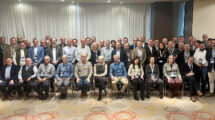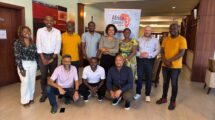Luis Eliecer Cadenas Marin, Chief Executive Officer en RedCLARA – Cooperación Latino Americana de Redes Avanzadas
The digital economy has been growing fast in several emerging countries, between fifteen and twenty-five percent per year. The growth is much smaller in developed countries. In total, the digital economy constitutes at least four percent of the global GDP. The irruption of platform-based business models has revolutionized many traditional industries. In Latin America, digital transformation could impulse faster growth rates, impacting wages, and creating new job opportunities for workers.
Digital transformation requires innovation and highly skilled workers that are in high demand all over the globe. The universities and research centers in the region have been transforming themselves at a low pace and with relatively little use of digital technologies. Recently, the Covid-19 pandemic has accelerated their need to innovate and search for a faster digital transformation. In the middle of this crisis, Latin American NRENs have been able to collaborate in a swift response to offer support to universities and research centers. Different technologies, know-how, and resources are available to them through the platform to facilitate this step. This digital platform provides a testbed useful to proof of concepts that will help universities and research centers to innovate and make better use of scarce resources.
These actions will evolve toward the creation of digital innovation hubs that will help to foster digital transformation not only for universities and research centers but for society in general. Digital innovation hubs are not-for-profit, one-stop-shops that support companies – in particular, small and medium-sized enterprises (SMEs) – and public organizations in their digital transformation.
The RENs in the region are a vital player to support and impulse this digital transformation. They constitute a digital platform able to create significant network effects in the academic community, delivering increasing knowledge potential and innovation. In this sense, they have the capabilities to catalyze these processes, based on:
- Regional scope
- Orchestration capacity
- Community trust and transparency
- Infrastructure availability
- Access to knowledge
The very complicated world we will have after Covid-19 will need the concourse and action of all the social actors to overcome the crisis. This crisis can be an opportunity for transformation to build a better world. Academic Networks in Latin America are ready for the challenge.
Originally published 28 April via LinkedIn







